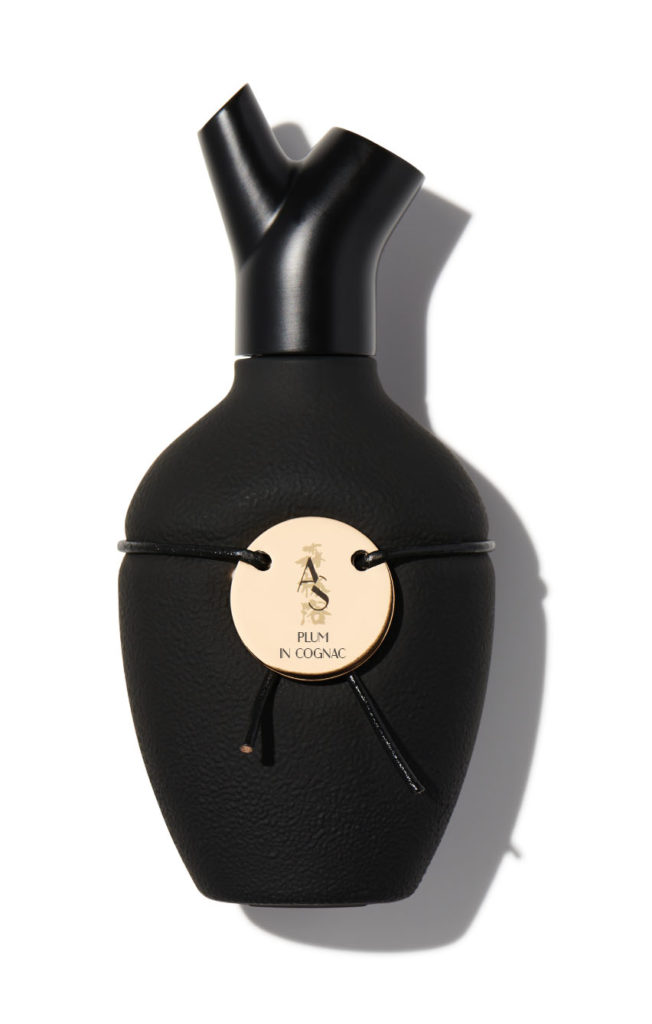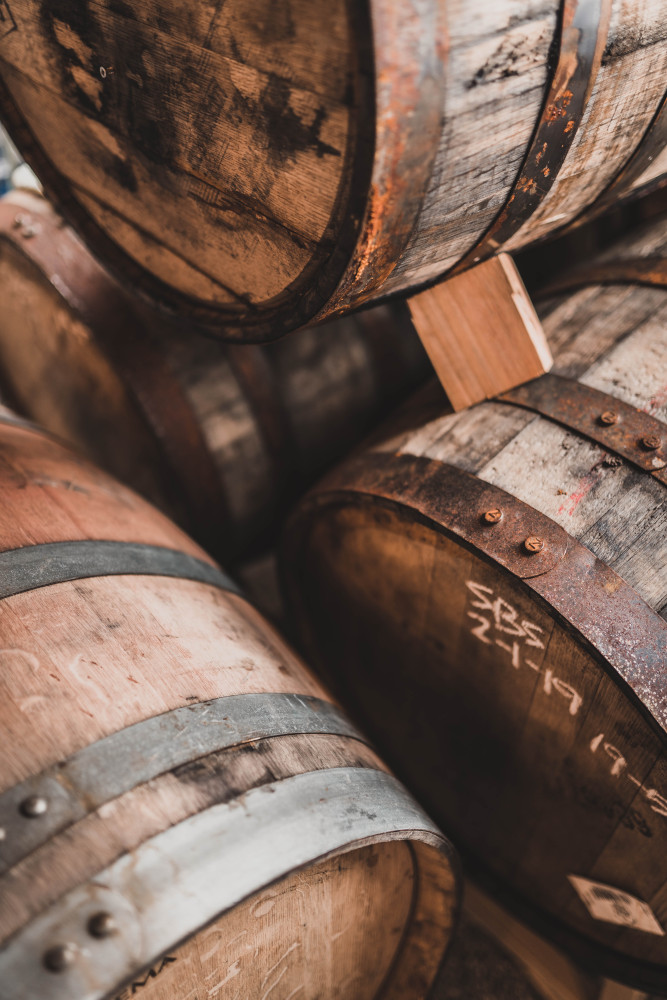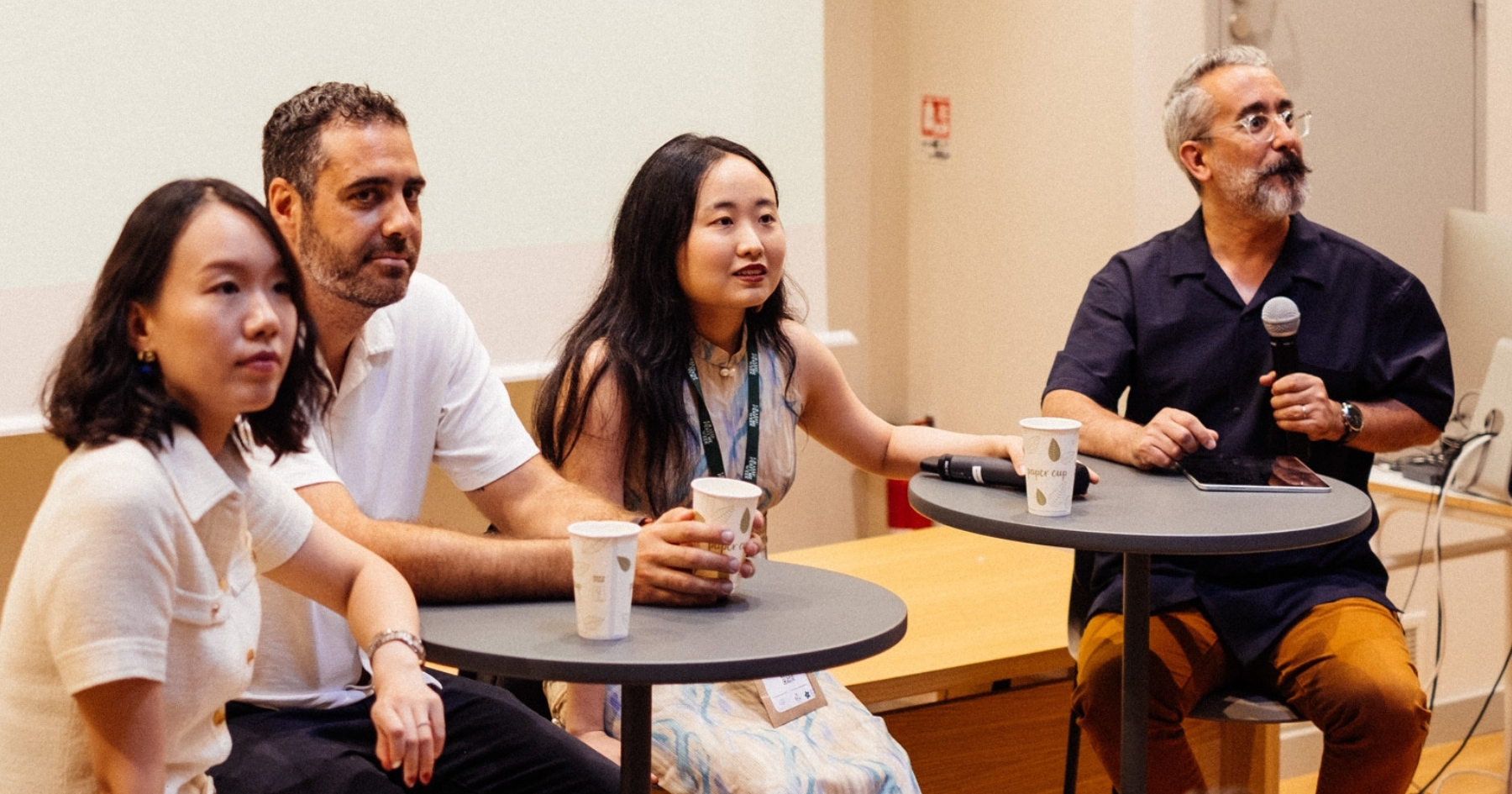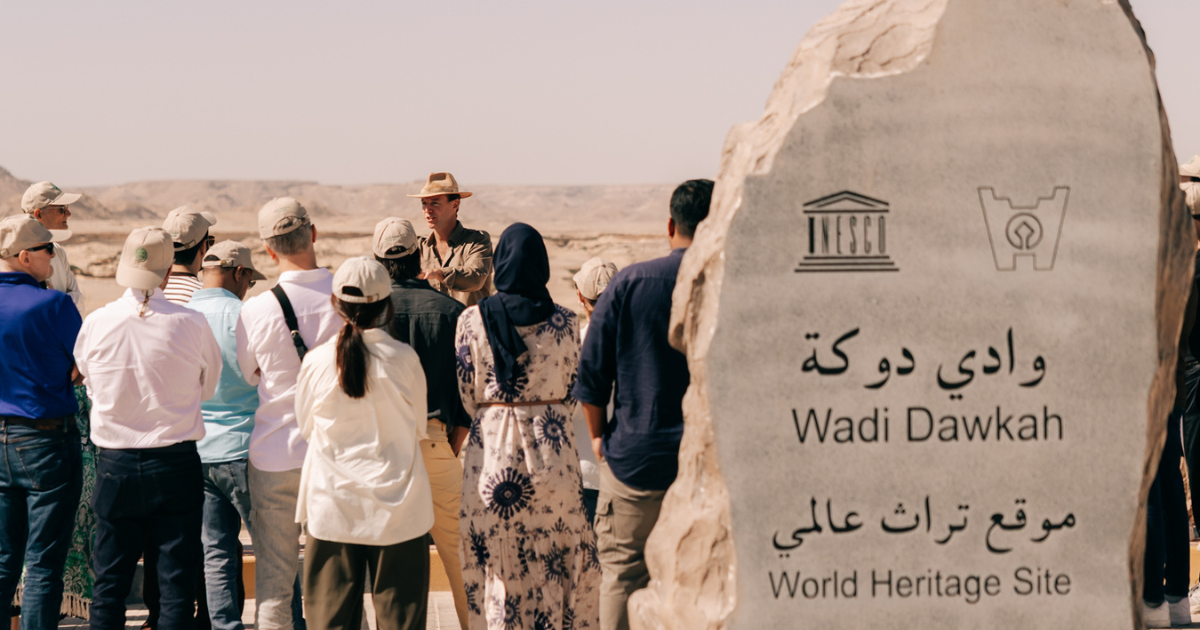Cette publication est également disponible en :
Français
When a lover of nature teams up with perfumers who know how to magnify it, creative ideas for honoring woods blossom. In this way, Fabrice Croisé has enabled an extraordinary forest of fragrances to grow at IFF.
At this time of spring’s awakening, snow still sprinkles the fir forest with its coat of frost. Soon, an infinite richness will be revealed as the ice begins to melt: The trees will regain their emerald finery and, above all, their fragrances will once again be able to take flight. Fabrice Croisé, the creator of the brand Scents of Wood, is in the know: He has been living in Park City for several years, amid nature, to relish the rugged landscapes of Utah, in the Western United States. After starting his career developing Lancôme fragrances at L’Oréal, the founder spent a while working for an ad agency specializing in the luxury industry. Then, the urge to create took over: In 2014, he explored the olfactory territory of flowers. In collaboration with the famous American florist Eric Buterbaugh, he founded the company EB Florals, which has since been sold to Puig. Building on this success, the entrepreneur embarked on a new project and decided to continue discovering plant life, focusing on a specific family of scents: woods.
French, American and Japanese… The company operates in three languages, distilling three identities. Here is an element of originality that the founder still finds amusing: “Having three names is actually against the principles of marketing!” The title thus changes according to the country where the products are distributed and details, like a story being narrated, the journey of the sylvan fragrances, from the tree to the bottle. In Japanese, the name ShinrinYoku means “forest bathing” and evokes a moment of meditative walking, drenched in the energy of the trees. The French name of the brand, L’Âme du bois, which translates as “soul of wood,” recalls the barrel-aging stage, when the alcohol macerated in a spirit barrel takes on the patina of time. Finally, the English name, Scents of Wood, expresses the last step, the result of the perfumer’s work.
IFF: a partner at the source
In 2020, when the perfume industry suddenly froze, becoming as immobile as a tree, Fabrice Croisé began to write his story. The brand presents itself as “a love letter to the forest, a tribute to the beauty of woods.” It speaks neither of place nor personality but is rooted directly in olfaction: “Woods speak to everyone; their names evoke a story that each consumer finds readily readable,” explains the creator. And to take the concept a step further, why not age organic alcohol in wooden barrels? A somewhat outlandish idea that immediately appealed to Nicolas Mirzayantz, who at the time was the global president of the Scent division at IFF. The technical challenge was worth taking up, and the American composition house invested fully in the project, entering into an exclusive partnership with the brand. Between Paris and New York, eight perfumers signed the perfumes featured in the range.
An intimate forest
The founder has developed a highly original way to inspire his perfumers. “I have them close their eyes and tell me about their personal forest. Which woods have played a role in the construction of their current person?” Fabrice Croisé asks. From then on, every memory serves as a support for telling a story: the forest where you used to walk with your grandfather, the tree in which you built your first tree house with your brother, or a woody scent you smelled ten years earlier and that you never forgot. “When the perfumer searches their memory and identifies a wood from their childhood, I stop their train of thought: ‘Let’s start from there!’ And the creation begins,” he explains.

Plum in Cognac, the collection’s bestseller, was born from this type of exchange with Pascal Gaurin. The perfumer, who lives in New York, immediately thought of the plum tree of his childhood home, which he used to climb, and its “succulent and juicy” purple plums. Candied with notes of caramel, vanilla and cinnamon, the fruit melts into a deliciously decadent gourmand and spicy accord. “It’s a rather dark composition that additionally speaks of the relationship we might have with addiction,” says the perfumer, whose creation also recalls the scents of tobacco and rum. Finally, in subtle touches, the smoky wisps of vetiver and cistus punctuate the story, in memory of the branches and dry herbs that Pascal Gaurin used to burn as a child in his garden on Sundays, and whose smoke would saturate his clothes. “It’s a composition that is directly anchored in a personal memory,” Fabrice Croisé appreciates, “and I am convinced that it is felt, that it touches the consumer in a very sincere way.”
Aged in wooden barrels
As an extension of the perfumer’s palette, the organic alcohol used is aged in spirit barrels, in this case cognac barrels for his latest creation. The wood thus permeates the composition and endows it with its incomparable patina. “It’s a brandy barrel that I had purchased in Cognac and in which the spirit had been aged for about ten years. The cognac notes resonated divinely with Pascal’s rum and plum accord,” explains Fabrice Croisé. All the products in the range follow the same approach, according to a secret process that IFF has developed in its factories. Is this a nod to the ancestral methods – the infusion of vanilla or musk in alcohol – that perfumers used before the advent of industrialization? Perhaps, but with one major difference: Here, it is the alcohol itself that ages in wood, capturing all of its olfactory substance. It is true that the main element of a perfume, its alcoholic part, is often considered to be a solvent, a not-so-noble component of the product. “The purer the alcohol in the perfume, the less it interferes with the concentrate. I wondered what would happen if it was no longer an invisible element of the composition but rather one more ingredient in the perfumer’s palette,” explains the founder. An enriched alcohol, in a way. That’s how Fabrice Croisé started collecting wooden barrels, whenever he could find them on his travels, from Cognac to Kentucky, via Scotland. Sometimes they were old casks that had lent their souls to many spirits; sometimes they were new, impregnating the creations with their earthy and powerful essence, a reminder of their prior life as a tree. Each barrel distills its own nuances, sometimes ambery, sometimes woody, always rich and deep. The choice of the essence is made in a very experimental way: “We smell different trials and choose with Fabrice the best creation–barrel couple,” Pascal Gaurin details. The aging time of the alcohol, in turn, differs according to the wood: Acacia, which is generally used for white wines, is more subtle, and its maceration takes about eight weeks; on the other hand, cognac, which is more powerful, is also faster, as two weeks is sufficient to tint the alcohol with its liquored nuances. To date, the brand has experimented with five types of new casks – American oak, French oak, chestnut, acacia and hinoki wood – and four vintage casks formerly dedicated to cognac, calvados, rye whisky, bourbon and maple syrup.

An inexhaustible source of inspiration
The complete collection now includes 33 fragrances, enough to cover all the facets that go with wood essences: ambery, gourmand, fresh, floral, green, and leathery. Pascal Gaurin, who has signed nine of them, recalls that he had set out to explore new themes for the second year of creation, seeking more freshness in woody notes. Cedar in Acacia, which evokes the warmth of the sun on the skin at dawn, is cooled by a burst of ginger. Pine in Acacia awakens the memory of the forests of the Landes in Gascony, France: “Its code name was Lacanau, a resort where my godfather had a house,” admits the perfumer. “The Atlantic coast of France was likewise a strong source of inspiration,” a place well known to Pascal Gaurin, who also has family on the island of Oléron. His creation is thus the result of the contrast between the luminous freshness of the ocean and the resinous vibration of pine and cypress trees. The founder does not intend to stop there and already envisions what’s next on the horizon: “The more we study nature, the more we appreciate its infinite richness; the number of stories there are to tell are not lacking.”
NFTs: a new tool for distribution
Fabrice Croisé is a lover of nature, but he is also an enthusiast of new technologies. To bring his brand to life, he has devised an original subscription system in which NFTs (non-fungible tokens) can be used as credit. These encrypted tokens uniquely identify a property title, giving it all its rarity. The NFTs offered by Scents of Wood give their owner access to four fragrances for two years. “The NFTs bring a real interest to the subscription platform,” explains Fabrice Croisé. “They allow members to use their credit at the rate they want, to be able to resell their subscription if needed or simply to interact with a community. NFT owners are indeed very proud to have them and also to show them to others.” In April 2023, the brand will participate in the NFT NYC show, which brings together NFT owners from around the world in New York City. “I like the idea of educating perfume lovers about technology and tech people about perfume,” the designer laughs. Traditional in the know-how and quality of perfumes, Fabrice Croisé also knows how to be a trendsetter when it comes to their distribution.
The brand is sold on their website as well as at Ministry of Scent in San Francisco, at Jovoy in Paris and London, and Le Paravent in Lyon (France).
Main visual: © Fabrice Croisé








Comments